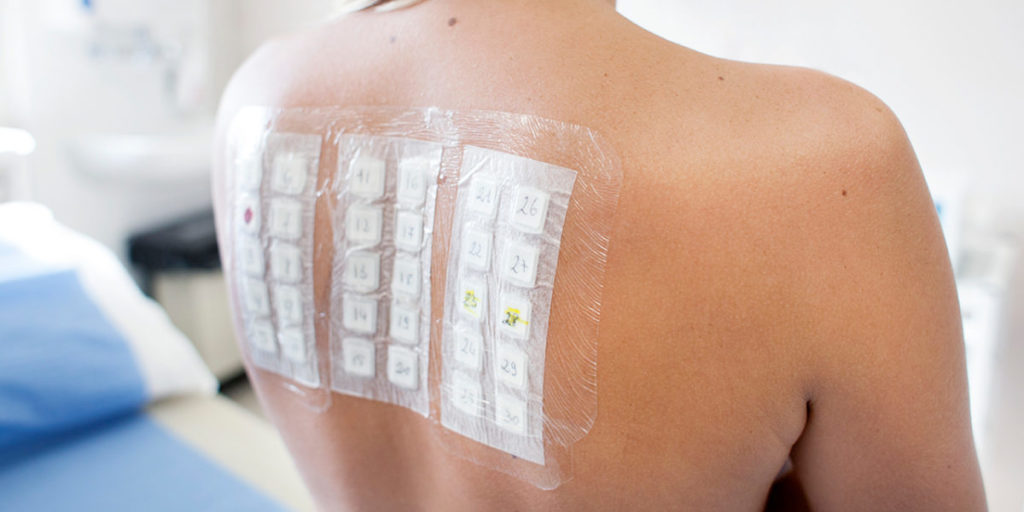Did you know that allergy symptoms can occur after contact with various metals? These metals may be cobalt or chrome, stainless steel, and titanium which are common metals used for orthopedic or other implants. Nickel is also a popular metal allergy that affects between 10% and 15% of the general population. Allergy symptoms include:
- Swelling
- Pain
- Draining sinuses
- Inflammation at the implant site that mimics infection
Devices containing metal are typically implanted during surgery without prior testing for allergic reactions. In patients with a history of contact allergies, it may be helpful to get a Metal Allergy Patch Test prior to your procedure. Many implants often contain more than one metal. It can be helpful to know if you have any metal allergies before undertaking any procedure involving metal implants. Metal allergies could lead to your implant being removed with time and money being wasted. For all patients considering a metal implant including dental procedures, you may want to consider an allergy consultation beforehand to see if you are allergic to metals.
How Do I Know If I’m Allergic to Metal Implants?
An allergy specialist can usually diagnose metal allergies with a patch test. Patch testing is used to test allergic reactions on your skin. During the patch test, a substance is placed on a patch that is then applied to your skin. Positive reactions can be immediate or delayed. So, many allergists wait at least 48 hours before removing the patch.
While patch testing is considered to be accurate for common contact allergens, it may not be suitable for some individuals. For example, patients who experience heavy sweating throughout the day should avoid patch testing. In this case, we recommend metal allergy patch testing. It’s a low-risk way to make sure your body isn’t allergic to one of the metals used in artificial joints.
Patching testig tests for skin reactions to seven of the most commonly used metals in medical procedures. These procedures include:
- Joint replacement
- Arterial Stents
- Orthopedic plates and screws
- Cardiac pacemakers and defibrillators
- Sternal wires
- IUDs
- Dental implants
Talk to your provider for more information on metal allergy patch testing.
Is There Treatment For Metal Allergy?
At this time, there isn’t a cure for metal allergy. Once you develop an allergy to metal, you’ll likely continue to see symptoms whenever you come into contact with the metal. If you get diagnosed with a metal allergy prior to getting a metal implant, you may be able to proceed with surgery using a non-metal implant. Be sure to discuss your options with your doctor. If you want to discuss how to manage your metal allergy, visit NY Allergy & Sinus Centers for a personalized allergy action plan. We offer nine allergy centers throughout New York City with extended hours at select locations. Call (212) 686-6321 or book an appointment online to get started today!

